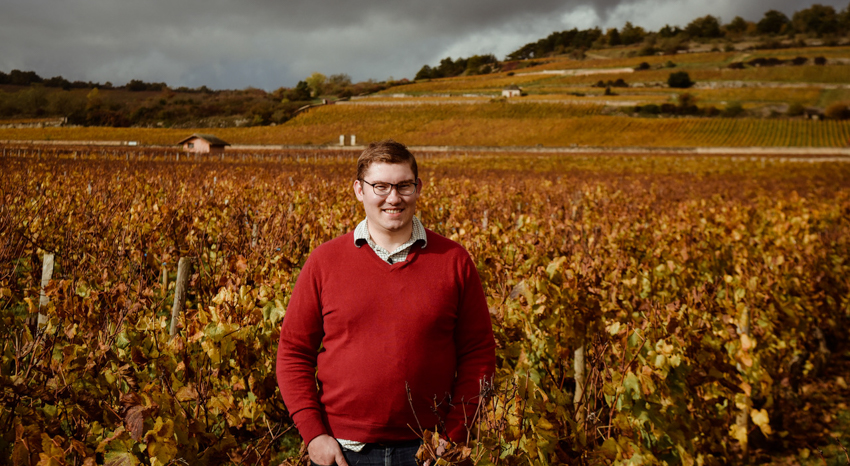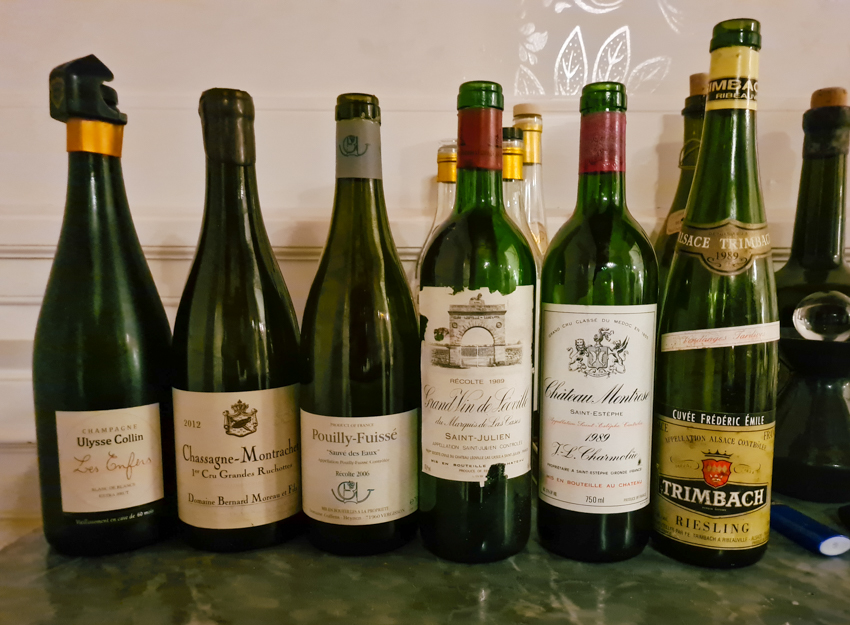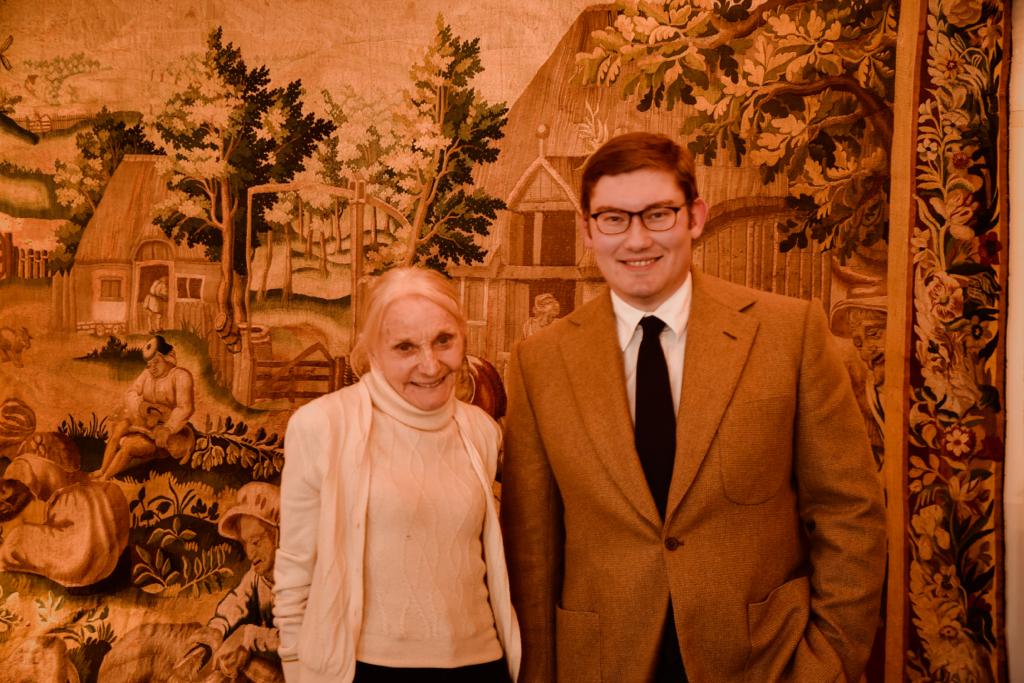
William Kelley has achieved a lot in his short career in wine. In 2015, time spent producing wine in California turned to a permanent writing role at Decanter (alongside pieces written for Noble Rot and The Robb Report). By 2018 he was snapped up by The Wine Advocate to focus on Burgundy and Champagne, as well as the California coast. Multiple writing awards and nominations have followed, and there are two embryonic wines being made in Burgundy.
Now, with news of his additional roles as Deputy Editor and Bordeaux reviewer for The Wine Advocate, following the news of Lisa Perotti-Brown's departure, he has considerable responsibility in reviewing the great regions of France. With that in mind, I got in touch with a friend I have known since he was a precocious talent running The Wine Circle at Oxford University, so that Farr Vintners customers might better understand the man behind the reviews.
Firstly, congratulations on the new role! Managing Champagne, Burgundy and Bordeaux at once should keep you very busy. How will you be splitting your time?
It's certainly an extensive remit, but I'm relocating to France full time, so not only will I have more time to taste, but I'll also be better able to distribute my work throughout the year. I tend to think that tasting too much, too intensively doesn't give as good results as working more slowly, and I have no intention of tasting 150 wines per day and reviewing the whole of Bordeaux in one week. My aspiration is not so much to taste more, but to taste better and to go deeper. Of course, I'm only one year older than Robert Parker was when he founded The Wine Advocate, so I think I've got the energy to take on this new role.
Many will know the expertise you possess in Burgundy and Champagne: what is your Bordeaux knowledge and experience like?
Bordeaux, in fact, was my first love in wine; something I've had to remain discreet about living in Beaune! I cut my teeth as a taster on mature Bordeaux, as an older mentor of mine was immensely generous with his cellar. I remember, at the age of 19, comparing the château bottling of the '61 Cheval Blanc (a variable but episodically profound wine, incidentally) with two different English bottlings—and things like that made an indelible impression. But I've also been visiting the region for the better part of a decade and have followed Bordeaux's viticultural and stylistic evolution closely, even if my professional focus has been directed elsewhere. Bordeaux is often on our table at home, and an important component of my personal cellar, with bottles dating back to 1921 (I actually opened a Margaux '21 to celebrate the new appointment), so I couldn't be more excited to finally have the chance to write about it professionally.

What sort of coverage can we expect on Bordeaux; are there any topics in particular that you are interested to cover?
There are many! I hope to bring the same sort of boots-on-the ground coverage to Bordeaux that I've aspired to bring to Champagne and Burgundy. The last decade has witnessed all sorts of exciting viticultural developments in Bordeaux. Farming is much more, of course, than a mere matter of certifications, but the fact Bordeaux's organic acreage has increased from 9% to 17% in just the last two years is indicative of how fast things are changing. Yet reading the wine press, one is still more likely to learn the name of the architect who designed the tasting room than the name of the vineyard manager. Believing as I do that great agronomy is a prerequisite for great wine, I certainly intend to address this subject. Simultaneously, the region continues to go through an important stylistic recalibration, something I want to write about with candor and context. I also want to make sure great wines being produced from less exalted appellations get a fair hearing. And beyond that, another big question that needs to be looked at is what is the future for Bordeaux's white wines, dry and sweet. They're frequently a bit of an afterthought as far as the press is concerned, which I think has held them back.
What gets you most excited about modern Bordeaux?
I think that the region is at an exciting point, after a decade of introspection and evolution and above all agronomic progress, and that the wine market is about to take renewed notice.
What, in your opinion, is the essence of great red Bordeaux?
Bordeaux is a larger region, so my answer might vary in the specifics if we're talking about Pomerol or Pauillac, but I think the region's best wines all share a profound complexity, concentration without weight, and a prodigious capacity not merely to survive but to improve with the passage of time in bottle.
Seeing your collection recently, you have a wealth of older vintage Bordeaux to choose from. How does that help you to assess younger wines?
I think that having followed earlier vintages over time brings a lot of insights when tasting young wines. It also brings humility (an underrated quality in wine critics), as sometimes the vintages that were written off surprise (look at how well some of the 2002s are drinking today, for example). And above all, it provides some context for estates' stylistic evolution. We hear a lot about how Bordeaux is making the best wines in the region's history today, and one can certainly make that case in a number of respects; yet it's important not to get carried away and lose a sense of where the wines are coming from, and what made Bordeaux's reputation over the last two hundred years. The 2018 Château Palmer, for example, checks in at 14.3% alcohol; whereas the 1961, which I once sent to the lab, is only 11.0%. To meaningfully assess the 2018, and understand what it means for Palmer, it helps to have drunk the 1961.

Do you think that the fact that you make wine will give you an advantage when assessing others?
It has certainly been a great school for tasting critically. Following my own wines as they go through malolactic fermentation, respond to the influence of oak barrels, change according to the vagaries of atmospheric pressure and temperature, or the abundance or absence of dissolved carbon dioxide, and indeed simply evolve from day to day, has made me an infinitely better taster, but also helped me to appreciate the limitations of tasting unfinished wines. I'm often impressed by the imaginative resources that go into tasting notes that describe six-month-old barrel samples as if they were showing all the nuances of ten-year-old bottles, but I can't claim to possess them. So while tasting En Primeur will obviously be a critical part of my job, revisiting wines from bottle, regularly, is also going to be an emphasis.
Could you give us a little insight into your early induction to taking wine seriously – how did you learn about wine?
I tasted a bottle of the 1955 Lynch-Bages in my late teens, and it fascinated me. So I set to reading everything I could find about wine. When I went to university, I joined a tasting group, which I ended up running for four years while I was completing my postgraduate degrees, and that was one major influence: we hosted many of the great wineries of the world, from the Bordeaux first growths; to tiny, artisanal producers such as Yves Gangloff and Ulysse Collin; to New World producers such as Harlan Estate and Spottswoode. So that gave me a very diverse introduction to the question of what great wine is. Simultaneously, I had an older mentor, Hugo Dunn-Meynell, who shared all sorts of old wines with me while I helped him catalogue his rather chaotic cellar; and having a very retentive memory, those reference-points remain vivid today. I've tasted all the important vintages of Pichon Lalande, for example, back to 1928, and Montrose back to 1921. In any case, between these two influences, my passion for wine became more and more consuming, monopolizing my spare time and disposable income, with travel to wine regions and buying and discovering wine. I had to find some way to support the habit, and it was clear that an academic career wasn't going to do it. So in 2015, I moved to California to work a harvest and better understand production, with a view to making my own wine, and at the same time I started writing for Decanter. Engaging with Californian wine was very important for my palate, as it actually threw into relief the European classics that I spent so much time tasting at Oxford, deepening my understanding of what made them special while also opening my mind to another aesthetic universe of wine. After a few more harvests, in Burgundy and California, I made the happy move to The Wine Advocate, and I haven't looked back.
What is the first truly profound wine you drank?
It was the 1961 Château La Mission Haut Brion.
And the best bottle you have had this year?
The 1961 Haut Brion I opened for my wife's birthday wasn't at all bad. Among younger Bordeaux, 1990 Margaux, 1982 Mouton, and 1989 Lynch-Bages are all rather obvious choices, but profound bottles that moved the needle. From Burgundy, the contenders would be Claude Dugat's 2002 Griotte-Chambertin, Jean-François Coche's 2001 Meursault Perrières, and Jean-Marie Guffens' 2002 Clos de Petit Croux. Recent bottles of 1947 Petrus and Margaux should make the list too!
What have you been drinking at home recently?
We drink pretty eclectically, though with a strong French bias which is hard to avoid when living in France. In the Spring and Fall, there has been a lot of older Bordeaux (including whites!) and Burgundy on the table, as I find my intensive tastings of young wines makes me reach for older bottles at the end of the day. Some older Californian wines from the late Burt Williams of Williams-Selyem, Philip Togni and Rick Forman (we opened a few old Sterling Reserves) also made an appearance. In the summer, we gravitated towards Champagne and lighter-bodied whites (Domaine des Ardoisières in the Savoie is a favorite whenever the temperature exceeds 100F). Now, as it gets cooler, I've started pulling out richer, wilder red wines—old Madiran and Cornas, the occasional mature Giacosa (I don't have much)—and old white Burgundy from the glory days before premature oxidation.
I thank William for the time and candour of his answers. We wish him luck in the new role and look forward to his first report on Bordeaux!